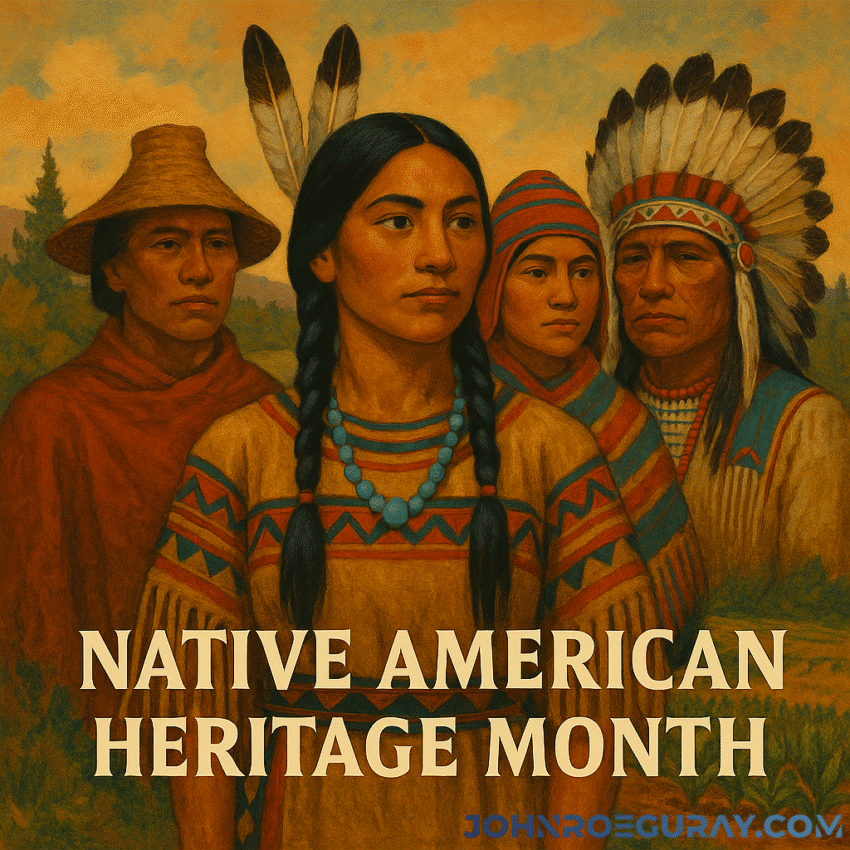Each November, the United States designates the month as Native American Heritage Month, a time to honor and elevate the histories, cultures, and contributions of Indigenous peoples. (National Today) In 2025, this observance offers a meaningful opportunity to move beyond recognition, toward restoration and re-shaping how society acknowledges Indigenous presence, rights, and value.
A Time to Reflect on Progress and Persistence
For many Indigenous communities, November is not simply a symbolic moment—it’s a reaffirmation of survival, agency, and hope. As the First Nations Development Institute notes: “This month and every month, we celebrate the ingenuity, culture, and resiliency of Native communities.” (First Nations)
Some key themes for 2025 include:
- Cultural Revitalization – Native languages, ceremonies, and arts are being revived and reshaped for younger generations.
- Land and Environmental Leadership – Many Indigenous nations are now key stewards of landscapes, waters, and biodiversity, offering models of sustainability and long-term thinking.
- Economic Self-Determination – Indigenous-led businesses, social enterprises, and community-driven development are gaining momentum.
- Education & Narrative Shift – The telling of American history is increasingly including Indigenous perspectives—not as marginal footnotes, but as essential chapters.
Celebrating Culture, Not Just Commemoration
While gala events, museum exhibits, and social-media posts are valuable, meaningful recognition involves deeper engagement:
- Attend or support events hosted by Indigenous organizations, artists, and educators.
- Explore literature, film, and art created by Native voices.
- Interrogate your own assumptions, unlearn oversimplifications, and lift up Indigenous stories on their own terms.
- Understand that Indigenous cultures are dynamic, living—not static historical curiosities.
The Power of Indigenous Leadership for Broader Justice
The struggles and successes of Indigenous communities are not isolated—they touch on themes of justice, equity, autonomy, and environmental health that matter for all of society. When Native nations reclaim sovereignty, when Indigenous lands are protected, when cultural heritage is revitalized, the ripple effects strengthen democracy, community resilience, and our collective future.
Examples to consider:
- Land restoration led by Indigenous communities often yields stronger ecological outcomes than conventional approaches.
- Indigenous food sovereignty movements are reclaiming traditional crops, soils and practices while improving health outcomes.
- When Indigenous voices are at the table in policy, governance, and business, systems become more inclusive and adaptive.
Challenges That Remain
Recognizing heritage is only part of the equation. Critical structural issues still demand attention:
- Many Indigenous communities face under-resourced infrastructure, limited access to health care, high rates of disease, educational gaps, and economic barriers.
- Land rights and treaty obligations continue to be contested; environmental threats—mining, logging, pipelines, climate change—disproportionately impact Indigenous territories.
- Cultural appropriation, erasure of languages, and mis-representation in media continue to undermine sovereignty and dignity.
- Indigenous nations often still contend with legacy trauma, separations of children, forced assimilation policies, and the continuing need for healing and justice.
Recommended Reads: Expanding Awareness & Understanding
- An Indigenous Peoples’ History of the United States by Roxanne Dunbar-Ortiz
A powerful re-telling of U.S. history through the lens of Native nations, dismantling myths and re-centering Indigenous experiences across centuries of colonization and resistance. - Braiding Sweetgrass: Indigenous Wisdom, Scientific Knowledge, and the Teachings of Plants by Robin Wall Kimmerer
A lyrical blend of memoir, ecology, and traditional teachings that reveals how reciprocity and gratitude form the core of sustainable coexistence with the Earth. - The Heartbeat of Wounded Knee: Native America from 1890 to the Present by David Treuer
A sweeping chronicle that reframes Native American history not as tragedy but as a story of endurance, adaptation, and ongoing vitality. - There There by Tommy Orange
A contemporary novel following the intersecting lives of urban Native Americans in Oakland, California, exploring identity, belonging, and generational trauma. - We Are Still Here! Native American Truths Everyone Should Know by Traci Sorell (for younger readers and families)
A beautifully illustrated introduction to Native sovereignty, resilience, and culture—an ideal read for children, classrooms, or family discussions.
Five Ways to Engage & Support During Native American Heritage Month 2025
- Attend Local or Virtual Indigenous Events
Check community calendars, university programs, and museum listings for powwows, art exhibits, film screenings, or talks hosted by Indigenous creators. - Shop Indigenous-Owned Businesses and Artists
From beadwork and textiles to books, skincare, and digital art—support Indigenous entrepreneurs directly. Directories like Native Business Network and ShopNative make it easy to find authentic sellers. - Learn Whose Land You Live On
Visit native-land.ca to identify the traditional territories you occupy. Use this knowledge to begin or deepen your practice of land acknowledgment with action behind the words—support local tribes and community causes. - Center Indigenous Voices Year-Round
Follow Indigenous scholars, activists, and artists on social platforms. Share their work, amplify campaigns (such as Missing and Murdered Indigenous Women awareness), and listen to Native podcasts or YouTube channels. - Advocate for Policy Change & Representation
Encourage inclusion of Indigenous perspectives in local and national decision-making, from environmental policies to education and media. Support movements for land rights, language preservation, and climate justice.
Looking Forward: Building Together
As we commemorate Native American Heritage Month 2025, let us not treat this as a fleeting acknowledgment—but as a waypoint in a longer journey. By celebrating culture, elevating leadership, addressing injustice, and aligning our actions with equity and respect, we move toward a future in which Indigenous nations not only survive—but thrive—and in doing so enrich all our communities.


